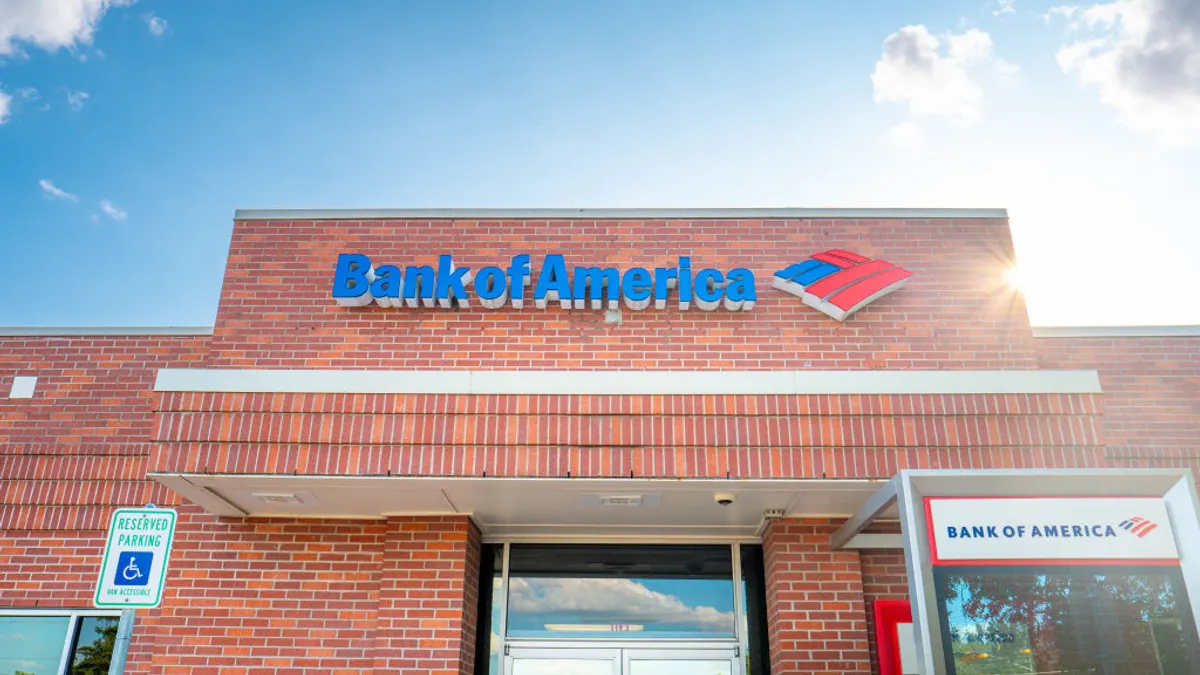Financial regulators are urging banks to offer responsible small-dollar loans to customers who have been negatively affected by the coronavirus pandemic, according to an interagency statement released Thursday.
The five agencies — the Federal Reserve, Consumer Financial Protection Bureau (CFPB), Federal Deposit Insurance Corp. (FDIC), Office of the Comptroller of the Currency (OCC) and National Credit Union Administration (NCUA) — said in the statement they are working on issuing future guidance on small-dollar lending for financial institutions.
"The agencies recognize the important role that responsibly offered small-dollar loans can play in helping customers meet their needs for credit due to temporary cash-flow imbalances, unexpected expenses, or income short-falls during periods of economic stress or disaster recoveries," they wrote Thursday. "Federally supervised financial institutions are well-suited to meet the credit needs of customers affected by the current COVID-19 emergency."
Advocates pushed for more banks to offer small-dollar loans long before the outbreak of the novel coronavirus sent the economy into a spiral, saying they are an alternative to predatory lenders. The American Bankers Association (ABA) describes these types of loans as short-term/small-dollar credit, which can include installment loans, single payment loans, deposit advance loans, credit cards and overdraft protection services. These loans are designed to help "cover emergency expenses, to manage misalignments in the timing of ... expenses and income, to cover a transition period between jobs or, for seasonal workers, to cover disruptions in pay."
Trade groups including the Independent Community Bankers of America (ICBA) and the Online Lenders Alliance (OLA), which have called for unified guidance on small-dollar loans in the past, praised Thursday's interagency statement.
"These are incredibly hectic times for consumers. And community banks, as responsible lenders, will play a critical role in meeting short-term funding needs within the communities they serve," Rhonda Thomas-Whitley, vice president and regulatory counsel with the ICBA, told Banking Dive. Thomas-Whitley has called for regulators to promote community banks as a model for small-dollar lenders.
"Community banks are not going to have a predatory lending scheme," Thomas-Whitley told Banking Dive in August. "They're not going to have an abusive lending product."
OLA CEO Mary Jackson applauded the move by regulators, saying now is not the time to be eliminating credit access "for those who need it most."
"We stand at the ready to help banks offer these loans pursuant to the interagency recommendation at a time when such credit access can be a true lifeline to many consumers facing unexpected expenses coupled with income shortfalls," she said in a statement.
The regulators' encouragement — and the promise of future guidance — could spur more banks to offer small-dollar loans on a permanent basis.
"Banks would like to see the regulators provide something consistent, a unified voice in putting out some guidance in this space," Happy Mango CEO Kate Hao told Banking Dive in August. The fintech helps banks and credit unions provide small-dollar loans to individuals with tarnished or no credit history.
Hao said regulators have been slow to offer guidance to support banks that want to enter the space.
Regulators say permanent guidance on small-dollar lending is forthcoming, but several agencies have been exploring the idea in recent years.
The OCC released a bulletin in 2018 encouraging banks to consider offering small-dollar loans. The FDIC released a request for information on small-dollar lending that same year, seeking input on consumer demand and the supply of small-dollar credit products that banks offer.
The NCUA agreed in September to let credit unions double the amount of money they offer in a payday alternative loan — to $2,000.
"Regulatory clarity and regulatory consistency is the first step that would make banks feel comfortable making these products," Hao said. "When there is inconsistency between the regulators' approach to this product, they're going to raise questions."
Although Thursday's interagency statement garnered praise from industry trade groups, the Center for Responsible Lending and the NAACP blasted the move.
"This is the worst possible time for banks to make predatory payday loans. Government regulators have opened the door for banks to exploit people, rather than to help them," the groups said in a joint statement. "Banks should not take the bait of this terrible idea. Especially at a time when banks are receiving 0% interest loans from the federal government, bank loans should be fair and affordable — at annual rates no higher than 36% for small loans and lower for larger loans. We will be monitoring whether banks offer loans that help or loans that hurt."





















